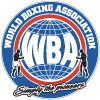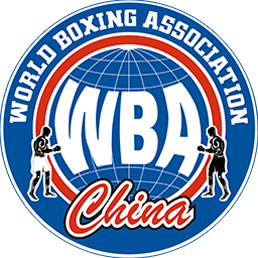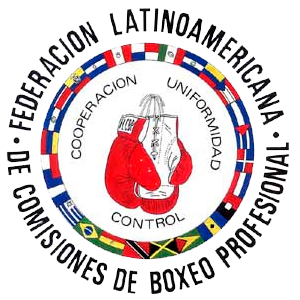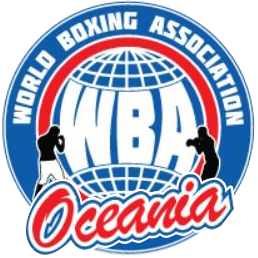Harry Greb. This name will surely say nothing to old and new boxing fans, since the character in reference is part of a very remote generation of gladiators located at the end of the first decade and beginning of the second decade of the twentieth century, almost a century ago, which of course leads us to presume that there are very few (only those avid readers of boxing history, like the writer of this article) who might know who was the man nicknamed “Pittsburgh Windmill” in boxing.
What we can say, before going any further, is that Greb was one of those boxers who only appears from time to time… But it would be better if you read on to learn a little more about the character and what he was like in the ring, in the incomplete micro biography about him in the following lines:
Harry Greb, plain and simple, Edward Henry Greb by birth (Pittsburgh, Pennsylvania, 06/1894- Atlantic City, New Jersey, 22/10 1926), as we noted before called “The Pittsburgh Windmill” was an exceptional middleweight boxer who old chroniclers of ring history always placed in their historical notes in the lists of the most prestigious exponents of the ancient sport.
A MEMORABLE RIVALRY
It would be enough to mention just one of his fights to grant a privileged place in history to the man who has been in the International Boxing Hall of Fame in Canastota since 1990 (in 1954 he had already entered the Nat Fleischer Museum, now disappeared or replaced by the current one in New York).
That memorable battle with gloves was staged in “The Big Apple” on May 23, 1922, in which Greb faced the legendary Gene Tunney, U.S. national champion of the Light Heavyweight. It is worth noting that four years later Tunney would dethrone the “Manassa Killer” Jack Dempsey, heavyweight champion, and defeated him again in the rematch in the historic fight called the “Long Count” 96 years ago, exactly on September 22, 1927, at Soldiers Field in Chicago, Illinois, before more than 100,000 spectators and which we have referred to on other occasions.
In the bout against Greb, the defending champion, Tunney, came up with 174 pounds, 12 more than Greb. He had never been defeated in 53 fights, while his opponent exceeded 200 fights. At the time, Greb was suffering from failing eyesight due to a detached retina, an injury sustained in a fight the previous year. Allegedly (this is what is known about it) to even out his physical disadvantages, Greb appealed to illicit resources in several parts of the fight.
In the first round he headbutted the champion and broke his nasal septum. He finally won by points in what was the only frustration in the brilliant career of the former Marine (he left the ring with 65-1-1 -47 knockouts, a former U.S. Army officer in World War I, as well as an indefatigable reader and lover of classical music), snatched the light heavyweight belt of the country.
In February of the following year, Tunney (at 175 pounds, 10 more than Greb, took revenge and regained the belt in 15 rounds. In March of ’25, Tunney (181 pounds, with his fierce rival at 167) prevailed again. GT would say, in retirement, that Greb had been the toughest opponent in his entire career and that he didn’t know how he could have ended up on his feet in the first confrontation.
The blistering, lightning-fast, slick fighter, who moved around the ring incessantly and unusually courageously, dominated the middleweight lot from 1923 to 1926. He won the world title by decision against Johnny Wilson (08/31/23) and defended it 6 times favorably-all by decision-against Bryan Downey (12/3/23, in 10); Johnny Wilson (01/18/24, in 15); Fay Kaiser (03/24/24, in 12); Ted Moore (06/26/24, in 15); Mickey Walker /07/02/25, in 15) and Tony Marullo (11/13/25, in 15).
On 02/26/26, in NY another luminary of the era and also with his name inscribed in the Hall, Thedore (Tiger) Flowers, the first black 160-pound world champion (72, 5574 kg) knocked him down in 15 and took the throne. Flowers beat him again on August 19 of that year in New York, a frustration that forced Greb, already far from the great fighter he had been, to say goodbye to the ring for good.
HIS STYLE, MERITS AND FINAL DAYS
In 12 years, between 1913-1926, he left behind him some 290 fights, although other statistics give him 305, of which 46 were knockouts, 64 on points, 1 by foul, 3 draws, 5 defeats on the scorecards and only 2 knockouts against. Other 168 appear as No Decision or without official results, plus a no contest.
He distinguished himself for his aggressive way of fighting without stopping throwing punches in each round, a real machine gun with gloves that, although without great knockout power, overwhelmed his opponents with a relentless rain of punches from all angles, in constant mobility from one side of the ring to the other.
Greb counts among his merits, which endorse his greatness, with different recognitions from connoisseurs and specialized organizations. Among these stand out, for example, being the 5th and 4th of all time, respectively, by the historian Bert Sugar and the commentator Max Kellerman; the 2nd greatest of all eras for The Ring in the last 90 years; the 5th greatest of all time by Box Rec and the first middleweight, third light heavyweight and second Pound-for-Pound of history for the International Boxing Research Organization.
Almost blind since five years before his farewell to the ring, he died, still in his prime, when he was only 32 years old in Atlantic City, New Jersey, after undergoing surgery for a damaged eye injury, on October 22, 1926. Sixty-five (65) days after his last climb to the ring.
An old American historian said of Greb that “he combined the speed of Robinson, the consistency of James J. Jeffries, the vitality of Hank Armstrong and the murderous aggressiveness of Stanley Ketchel, besides having a will to win without equal in history”. For his part Jack Dempsey, who reigned among the heavyweights from 1919-26 said of “Pittsburgh Windmill” that he was “the fastest boxer I ever saw in my life, faster even than a lightweight.”

















